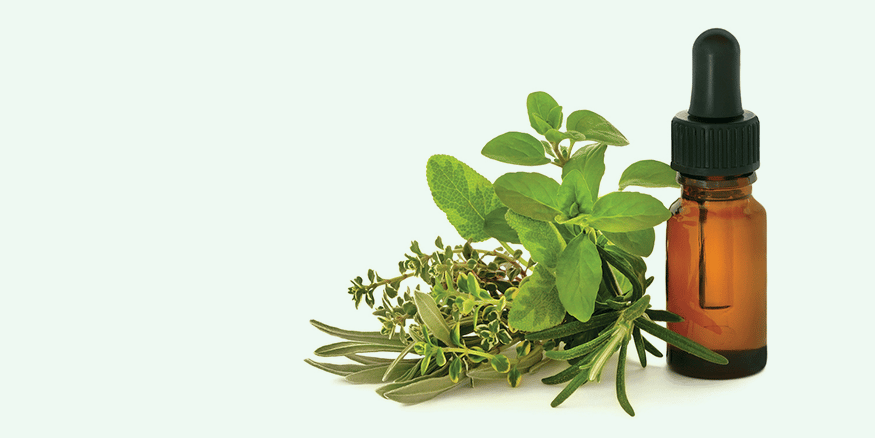
Western Herbal Medicines and IBS
For decades, we’ve written about complementary and alternative therapies, such as herbal products and Traditional Chinese Medicine, for management of digestive ailments. There are still questions surrounding their safety and efficacy, but a recent meta-analysis on Western herbal medicines,1 found that peppermint essential oil, aloe vera, and asafoetida – a gum produced by a type of giant fennel plant – show promise for the treatment of irritable bowel syndrome (IBS). Historic European and Indian practices have inspired the current use of herbal medicines in the West, with further influence from herbal traditions in North America.
IBS is a functional gastrointestinal disorder that presents with symptoms of abdominal pain, bloating, and altered bowel behaviours, such as constipation, and/or diarrhea. There is no cure for IBS, so individuals rely on a range of medications along with dietary and lifestyle changes to help ease their symptoms. Despite these options, managing IBS can still be challenging.
The study investigators conducted a literature review using online medical journals, including English, Danish, Italian, and German language papers with placebo-controlled randomized clinical trials. Participants in those studies must have met global diagnostic standards for IBS at the time of publication. They accumulated 1,229 studies but narrowed their analysis to 33 papers using a strict set of rules.
Of the studies included, 18 were for peppermint essential oil and 15 for other herbal medicines.
Peppermint Oil
Compared to placebo, peppermint essential oil showed consistent results in relieving IBS symptoms, particularly abdominal pain. The investigators calculated a benefit-to-harm ratio of 25, so for every individual who experiences side effects, 25 will receive a therapeutic benefit. They concluded that peppermint oil has a benefit-to-harm ratio that is comparable to other IBS treatments, such as antidepressants, soluble fibre, and probiotics. However, it is nowhere near as effective as rifaximin (Zaxine®), which has a benefit-to-harm ratio of 846. Participants using peppermint oil also reported adverse events, with the most common being heartburn (32 out of 537 participants in evaluable trials). A few experienced perianal burning, headaches, and dry mouth.
Aloe Vera or Asafoetida
The studies that focused on either aloe vera or asafoetida showed benefits in reducing IBS symptoms. However, the studies were too few and too small to make a definitive answer as to their effectiveness.
Others
Several other products helped reduce IBS symptoms, but need more research:
- Iberogast® (Read the article)
- Carmint®
- aniseed essential oil
- a combination of curcumin and fennel essential oil
- a combination of Schinopsis lorentzii, Aesculus hippocastanum, and peppermint oil
Chili Peppers
Among all herbs reviewed, IBS participants did not respond well to Capsicum annuum (chili peppers). A quarter of participants experienced intense abdominal pain and then withdrew from the trial. A further 32% experienced severe abdominal pain and needed their next dose reduced to half of what it was initially. This may be due to a sensitivity to capsaicin, which is the chemical that makes chilies spicy.
Outlook
The authors admit that their search terms might not have captured all the published literature and that the included trials varied in IBS diagnostic criteria and risk of bias. They conclude that three Western herbal medicines might offer therapeutic benefits for IBS symptoms: peppermint oil, aloe vera, and asafoetida. Many other herbal medicines have potential benefits, and while one product studied had several negative side effects, the rest of them were generally safe.
Although physicians widely recommend the use of peppermint oil, they need more research before recommending other herbal products to treat IBS. Please consult your doctor if you are exploring alternative therapies for IBS.















